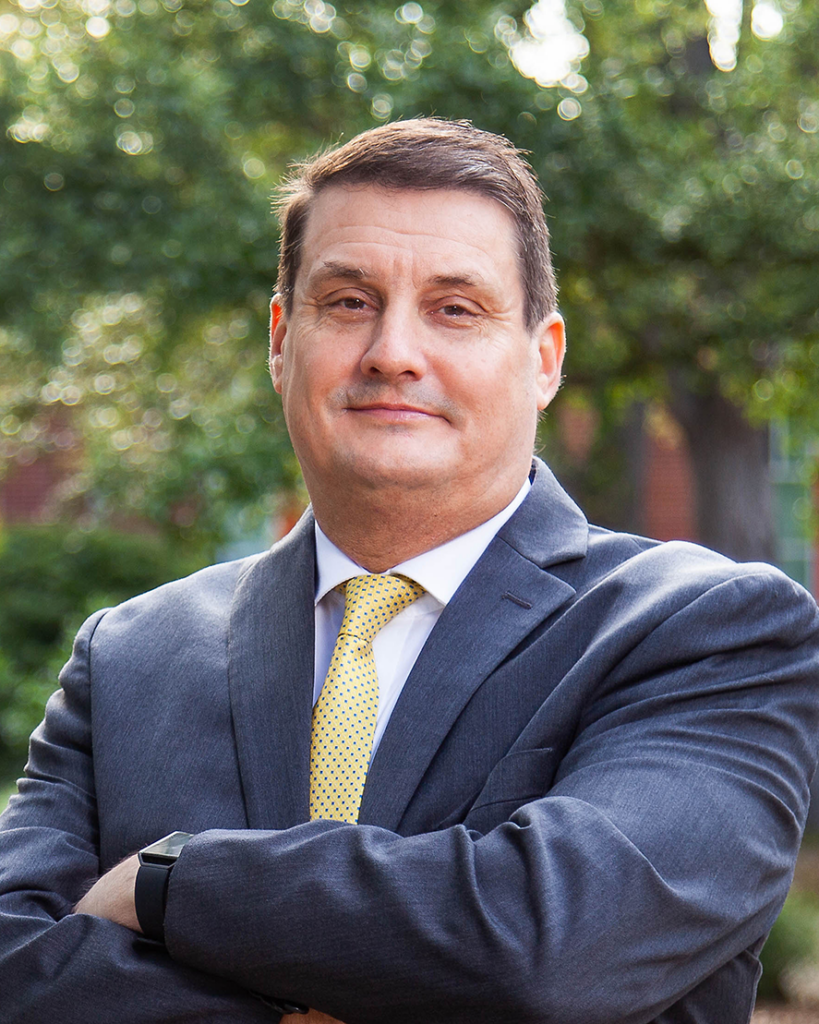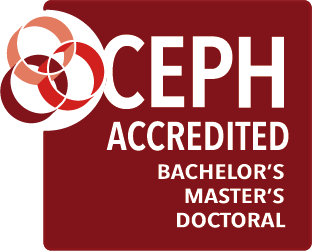Contact Info
- jphcoph@georgiasouthern.edu
- 912-478-2674
-
Statesboro Campus
Hendricks Hall
Armstrong Campus
Solms Hall Suite 109
Welcome from the Dean

Welcome to the Jiann-Ping Hsu College of Public Health (JPHCOPH) at Georgia Southern University, a destination for those passionate about making a difference in public health. As the Dean of JPHCOPH, I am both humbled and privileged to lead an extraordinary team of faculty, staff, and students dedicated to enhancing the well-being of rural and underserved communities in Georgia and beyond. Today, the JPHCOPH is home to 43 faculty, 5 staff, and nearly 500 students, all united in our mission.
The need to grow public health programs continues to be our single most important priority given that our funding is contingent on student enrollment. JPHCOPH has initiated several groundbreaking programs. These include the JPHCOPH Ambassadors Program, the Rising Scholars Public Health Institute, and the Public Health Pathway Program in partnership with the Bulloch County Schools, all set to launch this fall.
Continue Reading Dean Tedders’ Welcome
Scholarship and research are at the core of our endeavors as we aim to achieve R1 status, showcasing our leadership and innovation in public health education. Despite being a compact unit with just two departments, JPHCOPH consistently achieves remarkable success, securing $1.77 million in funding from 11 diverse sources in 2023, contributing to 78 conference poster presentations, 4 invited discussions, and 95 peer-reviewed publications. Our commitment to research has led to the formation of six strategic focus areas: Addiction Science, Maternal and Child Health, Sickle Cell Disease, Health Informatics, Health Equity, and Health Services, each poised for significant institutional collaboration and impact.
The future of JPHCOPH is bright with promise as we contribute to the overarching success of Georgia Southern University and elevate the health of the communities we serve. However, our vision requires support, and I invite you to join us on this impactful journey. Your contribution can help make a tangible difference in public health outcomes. To learn more about how you can get involved, I encourage you to reach out directly. Together, we can achieve remarkable things.
Stuart Tedders, PhD
Dean
Accreditation
Reaffirmed in December 2024
Georgia Southern University’s Jiann-Ping Hsu College of Public Health (JPHCOPH) is fully accredited by the Council on Education for Public Health (CEPH). CEPH is an independent agency recognized by the U.S. Department of Education. CEPH reviews schools of public health for accreditation every seven years. Schools are evaluated against criteria that establish expectations for the school’s mission, goals, evaluation and planning, as well as its organizational setting, governance, resources, educational programs, research, service, faculty and students.

Schools are required by CEPH to conduct a self-evaluation and submit a self-study report detailing how the school meets each criterion. A team of qualified peer reviewers conducts an on-site visit to validate the findings of the self-study. During the site visit, the team interviews school administrators, faculty, students, alumni, university officials and community leaders. The team also inspects the school’s facilities, examines documentation corroborating the self-study and prepares a report of its findings. The report is reviewed by the CEPH board responsible for granting accreditation.
History of the College
Public Health at Georgia Southern University began in 1998 in the Department of Health and Kinesiology within the College of Health and Professional Studies with the development of the Master of Public Health (MPH) degree with an emphasis in Community Health Education and the Master of Health Services Administration (MHSA) degree. The MPH expanded to include an emphasis in Biostatistics in 2000.
On January 14, 2004, the Board of Regents established the first School of Public Health in the University System of Georgia and named it the Jiann-Ping Hsu School of Public Health. The School was housed within the College of Health and Human Sciences. A generous gift in memory and honor of his wife, Dr. Jiann-Ping Hsu, from Dr. Karl E. Peace, made the School’s establishment possible.
Continue Reading About the History of The College
Formation of a School of Public Health (SPH) by the Board of Regents was a response to the compelling need to address the public health concerns in the State of Georgia, particularly among rural and underserved populations. Justification for a SPH at Georgia Southern University is directly related to the potential impact the institution would have among rural and underserved residents of the state. In addition to creating the School of Public Health, the Board of Regents also approved the establishment of the Karl E. Peace Center for Biostatistics. The Center for Biostatistics functions as a focal point for biostatistical consulting, education, and grantsmanship for the College and University.
To position the Jiann-Ping Hsu School of Public Health for accreditation by the Council on Education for Public Health (CEPH), the School transitioned to the Jiann-Ping Hsu College of Public Health effective January 1, 2006. Along with this transition, the Center for Public Health Practice and Research (CPHPR), formerly the Center for Rural Health and Research, was moved from the College of Health and Human Sciences to the new College. The Center functions as a focal point for improving the health status and quality of life of individuals in rural Georgia by creating successful partnerships with community organizations, faculty, and students. The Center for Addiction Recovery was established in Fall 2008 through a generous gift from the Willingway foundation. The Center is dedicated to research, educational programs and services focusing on addiction and the process of long-term recovery.
Currently, the College offers undergraduate, master’s, and doctoral degrees as well as an online Certificate in Public Health. The Bachelor of Science in Public Health (BSPH) has emphasis areas in Global Health (online), Health Education and Promotion, Environmental Health Sciences, and Epidemiology. The Master of Public Health (MPH) degree has concentration areas in Applied Public Health (online), Biostatistics, Community Health, Environmental Health Sciences, Epidemiology, Health Informatics (online), and Health Policy and Management. The Doctor of Public Health (DrPH) degree has concentrations in Biostatistics, Community Health Behavior and Education, Epidemiology, Health Policy & Management, and Public Health Leadership (online).
Our focus is to continually invest the necessary resources and quality improvement strategies to build and maintain the quality of our outstanding CEPH accredited College of Public Health that is recognized nationally for teaching, research, and service.
About Dr. Jiann-Ping Hsu

The Jiann-Ping Hsu College of Public Health is named in honor of Dr. Jiann-Ping Hsu, a scholar-scientist whose distinguished service in her life’s work and devotion to quality and caring in all her endeavors represent the touchstones of learning and leadership in the health professions. Born in Mainland China in 1947 and educated in Taiwan, Dr. Jiann-Ping Hsu became a scholar of mathematical sciences. She earned the B.S. in Mathematics from the National Taiwan University, the M.A. in Mathematical Statistics from Columbia University in New York, and the Ph.D. in Biostatistics from the University of California at Berkeley, where she was the top graduate in her class.
The eldest of five daughters, she worked to bring her parents and sisters to the United States of America, providing for her parents care and contributing to the college education of her sisters.
Dr. Hsu focused her expertise on public health, studying the efficacy and safety of pharmaceutical products in the treatment of patients. She served with the Food and Drug Administration, reviewing new drug applications, conducting research in the surveillance of post-marketing use of drugs, and drafting guidelines for clinical development of drugs for the treatment of inflammatory diseases. She then worked for several years in the basic research and clinical development areas in the pharmaceutical industry, having held positions of leadership with SmithKline and French Labs, Parke-Davis/ Warner-Lambert, and Schering Labs. She then joined Biopharmaceutical Research Consultants, Inc. (BRCI), a pharmaceutical research consulting organization founded by Dr. Karl E. Peace, as Vice President of Operations in 1993, and became President, in 1996. She also served on review panels for clinical trial grant applications for the National Institute on Drug Abuse and was instrumental in developing their Clinical Trials Network (CTN).
Dr. Hsu was a member of, and made major contributions to the growth of, the Committee of Women in Statistics in the American Statistical Association and served other professional organizations, including the Drug Information Association, the International Chinese Statistical Association (ICSA), and the Pharmaceutical Manufacturer’s Association. In 1999 and 2003, she was honored with the Meritorious Service Award of the Biopharmaceutical Applied Statistics Symposium for distinguished service and outstanding contributions. In 2004, she was posthumously awarded the President’s Medal for pivotal contributions to the success of the ICSA. During her career, Dr. Hsu mentored and trained more than 60 biostatisticians employed in the pharmaceutical industry, government or academia.
The Jiann-Ping Hsu College of Public Health is endowed by Dr. Karl E. Peace as a tribute to his wife and an enduring celebration of her life characterized by “a zeal for excellence, consideration of others, intelligence and scholarship, honesty, kindness, and humility.” Dr. Peace is an alumnus of Georgia Southern College, a Georgia Cancer Coalition Distinguished Cancer Scholar, the architect of the MPH in Biostatistics, and the founder of the Karl E. Peace Center for Biostatistics at Georgia Southern University.
